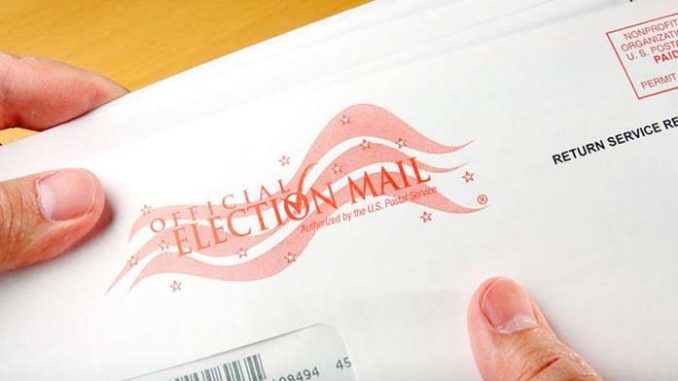
With the majority of Arizonans, including Gov. Doug Ducey, supporting the need for stronger election integrity laws, it is easy to find reasons to oppose changes based on what is happening in other states. But doing so is not an apple vs. apple comparison, according to Cochise County Recorder David Stevens.
Stevens noted that states have differently worded constitutions and different election laws, so a change that appears to be problematic in one state could have very little negative impact in another.
Take for instance the effort in Arizona to ensure an early mail-in ballot is actually cast by the registered voter. Nearly 90 percent of those who voted in Arizona in the 2020 General Election did so by an early ballot which could be mailed in or dropped off.
In November, voters will be asked to approve Senate Concurrent Resolution 1012 to require additional personal identifiers on the ballot affidavit envelope which voters in Arizona much sign in order for their mail-in ballot to be counted.
If passed by voters, SCR1012 would mandate that the voter not only sign the affidavit envelope, but also include his/her birthdate. In addition, the voter would have to include one other type of approved identifier (i.e., driver’s license, last part of Social Security number, tribal member number, etc.).
Some opponents of SCR1012 point to a new Texas law which recently added a personal identifier requirement. During the primary election last month in Texas, about 13 percent (roughly 23,000) of submitted absentee ballots were not counted because the voter did not satisfy the new election integrity requirements.
But a key difference often overlooked about the new Texas law is that it allows -but does not mandate- county election officials to alert a voter if there is a problem with the identifier.
In Arizona, there would be a mandated curing process under SCR1012 that county recorders like Stevens would have to follow. It is the same as the procedure currently in use when a voter’s signature on a mail-in ballot affidavit does not appear to match the voter’s registration file.
Stevens also noted that county recorders and voter-information groups would engage in pre-election educational efforts to make sure voters understand what is coming up. If SCR1012 is passed in November, those public entities which have elections in March 2023 will have more than three months to get the word out.
There have also been recent comparisons about Arizona’s efforts to implement a proof of citizenship requirement during the voter registration process.
Public records show there are thousands of registered voters do not have proof of citizenship noted on their voter registration file. And every day, new voters are being registered in Arizona to vote in federal elections under current state law because the National Voter Registration Application (NVRA) does not require documentary proof of citizenship.
House Bill 2492 was signed by Ducey last month as election integrity legislation which provides a better way to ensure only U.S. citizens cast votes in Arizona. Some opponents of the bill point to issues experienced in Kansas, which adopted a proof of citizenship law nearly a decade ago.
When first implemented, the Kansas law resulted in about 31,000 residents having their voter registration forms rejected. A federal judge put the law on hold due to constitutional issues. The U.S. Court of Appeals concurred, although the law itself is still on the books in Kansas.
So are similar laws in Alabama and Georgia, but their election officials never moved forward with enforcement due to the Kansas court rulings. But when Ducey signed HB2492 -which could be in place as soon as the August primaries- he specifically addressed comparisons to the Kansas decision.
“It’s not unconstitutional,” Ducey said of HB2492. “And I believe that voter ID is step one of being able to vote, and proof of citizenship along with that. This bill ensures that. And if somebody wants to challenge it in court, that’s our system.”
Two lawsuits have been filed in U.S. District Court of the District of Arizona challenging Arizona’s new law on constitutionality grounds. The legislation, however, is worded differently from the Kansas law, and the stated legislative intent and supporting committee testimony was also different.
For those reasons, it cannot be assumed that the same outcome will occur. The U.S. Supreme Court could also be more receptive to a law that seeks to ensure America’s elections are only for U.S. citizens.
